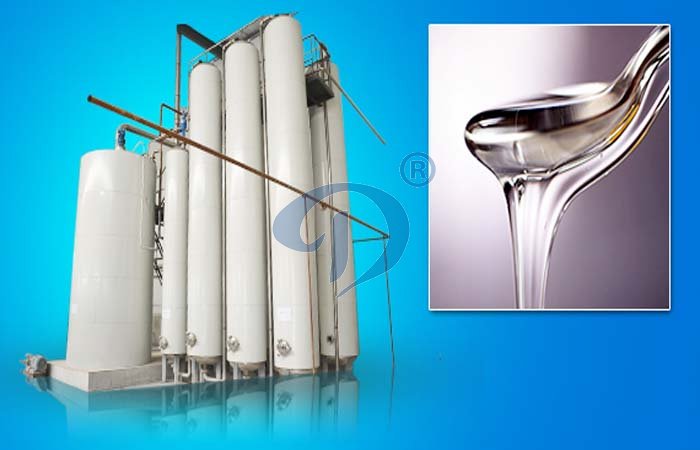 Tel/WhatsApp
Tel/WhatsApp
How to produce tapioca syrup from fresh cassava ?

Tapioca syrup production plant
Tapioca syrup(also called glucose syrup) is a concentrated aqueous solution of glucose, maltose and other nutritive saccharides obtained from edible cassava starch. Depending on the proportion of the different sugars in the syrup, it may be specifically called a maltodextrin, high maltose syrup or high dextrose glucose syrup. “Glucose Syrup” is the standard industry term referring to a mixed syrup containing glucose, maltose and a range of maltodextrins of different sizes.
The tapioca syrup production process is divided into two section: first section is making cassava starch cassava first , the second section is making tapioca syrup from cassava starch .This technology could yield economic and social benefits to the farmers who produce the cassava, entrepreneurs who produce the tapioca syrup, as well as the end-users.

Tapioca syrup production plant
The tapioca syrup production process detail description as below :
1. Cassava starch making of tapioca syrup production process
The cassava starch production line can produce high quality cassava starch from cassava automaticly, then the cassava starch will be used for making tapioca syrup .
2. Starch milk adjustment of tapioca syrup production process
Starch milk coming from starch plant is adjusted to DS28-32% and proper pH and temperature. Or mix the dry starch with water to reach above condition for next section.
3.Liquefaction of tapioca syrup production process
Starch milk is sent to buffer tank then liquefied by jet cooker with the aid of enzyme.
4. Saccharification of tapioca syrup production process
The liquefied material is sent to enzyme saccharification tank for reaction. After being kept in holding tube the required DE value of the glucose will be reached. Then the material is sent to flash for cooling then to the neutralization tank for suitable pH value.
5. Filtration and decoloring of tapioca syrup production process
Tapioca syrup is cleaned by removing the protein and other foreign items in rotary vacuum filter and filter press. Active carbon is needed for decoloring at proper temperature.
6. Ion exchange of tapioca syrup production process
Tiny foreign items and bad odor is removed via ion exchanger. This equipment is used for high quality product.
7. Evaporation of tapioca syrup production process
-
 Reasons for excessive impurities in cassava starch production
Reasons for excessive impurities in cassava starch production
-
 Main Factors Influencing the Price of Cassava Starch Processing Equipment
Main Factors Influencing the Price of Cassava Starch Processing Equipment
-
 Tips for buying fufu making machine
Tips for buying fufu making machine
-
 How to transform cassava into cassava slices?
How to transform cassava into cassava slices?
-
 How to Choose the Most Suitable Cassava Flour Milling Machine for Your Agro-Processing Factory?
How to Choose the Most Suitable Cassava Flour Milling Machine for Your Agro-Processing Factory?
-
 What should I pay attention to for reducing starch loss during cassava starch production?
What should I pay attention to for reducing starch loss during cassava starch production?
-
 Common Problems and Solutions During Cassava Starch Production
Common Problems and Solutions During Cassava Starch Production
-
 How Does a Cassava Grinder Work?
How Does a Cassava Grinder Work?
-
 Advantages of cassava peeler used for cassava agriculture
Advantages of cassava peeler used for cassava agriculture
-
 What Should You Consider When Ordering a Tapioca Starch Processing Machine?
What Should You Consider When Ordering a Tapioca Starch Processing Machine?
-
 Doing Factory Ships High-Quality Garri Processing Equipment to Nigeria
Doing Factory Ships High-Quality Garri Processing Equipment to Nigeria
-
 Selling High-Quality Cassava Processing Equipment to Uganda
Selling High-Quality Cassava Processing Equipment to Uganda
-
 Gari processing line successfully shipped to Nigeria
Gari processing line successfully shipped to Nigeria
-
 Cassava starch fine fiber sieve purchased by Indian client
Cassava starch fine fiber sieve purchased by Indian client
-
 Gari making plants were transported to Ghana from Henan Jinrui’s factory
Gari making plants were transported to Ghana from Henan Jinrui’s factory
CONTACT US
DOING company offers cassava processing machine from single machine to the complete production line. If you want to get more details about cassava processing machine, please contact us:
- Do you want to buy machine?
- Yes, I want to buy machine
- No, I Just learning
- What is your raw material?
- Cassava
- Potato
- Sweet potato
- Others
- 2. What is the final product you want to produce?
- Garri
- Cassava flour
- Cassava starch
- Cassava chips
- Attiekie
- Bammy
- Others
- 3.What is your capacity plan?
- Small scale garri machine
- 1ton per day
- 2tons per day
- 3tons per day
- 10tons per day
- 20tons per day
- Others
- 3.What is your capacity plan?
- Small scale
- 5tons per day
- 10tons per day
- 20tons per day
- 50tons per day
- 100tons per day
- Others
- 3.What is your capacity plan?
- Small scale
- 5tons per day
- 10tons per day
- 20tons per day
- 50tons per day
- 100tons per day
- 200tons per day
- 300tons per day
- Others
- 3.What is your capacity plan?
- Small scale
- Middle type
- Large scale
- What is your capacity plan?
- Small scale
- 5tons per day
- 10tons per day
- 20tons per day
- 50tons per day
- 100tons per day
- 200tons per day
- 300tons per day
- Others








